At Computex 2022, AMD released more details about its next generation of parts. The AMD Ryzen 7000 series brings features like new chipsets, PCIe, and memory, as well as more advanced compute die and I/O die features. These changes also will have an impact on AMD’s EPYC server line of processors, codenamed “Genoa” due for a refresh later this year.
AMD Ryzen 7000 Series Previews Zen 4 at Computex 2022
The new AMD Ryzen 7000 series utilizes a new core, called Zen 4. AMD is going big on doubling the L2 cache, but we should remember, as we saw with the AMD Milan-X that AMD has the technology to build large L3 caches as well. The net impact of the new 5nm design is a 15% single-thread uplift. Perhaps the most interesting for many of our readers is the instructions for AI acceleration. Intel has been pushing VNNI/ DL Boost in desktop and server CPUs and will be significantly expanding its AI acceleration in Sapphire Rapids. AMD will be joining the CPU AI soon, and that is good for EPYC servers as well. We tested that here.
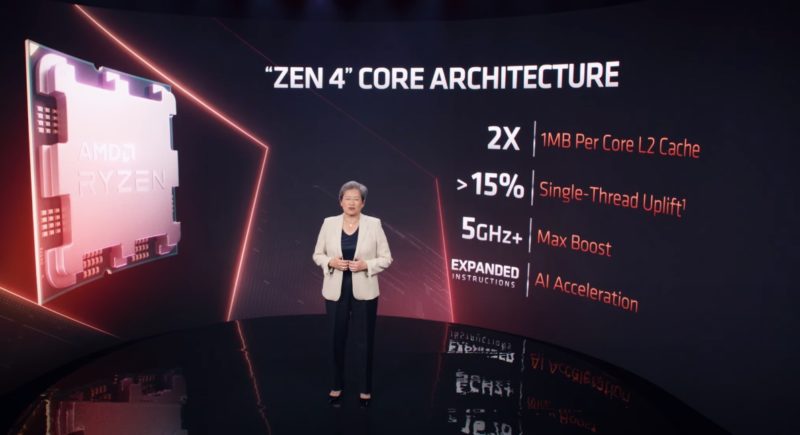
Beyond the 5nm cores, the other very exciting one is the 6nm I/O die. By doing a major process shrink, AMD is adding RDNA 2 graphics to this.
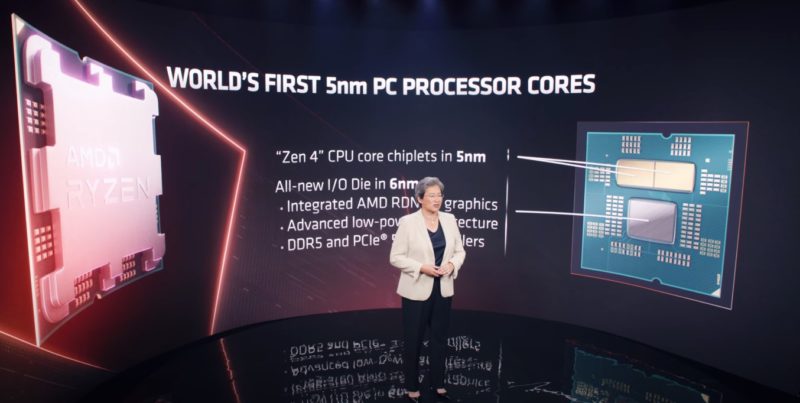
That integrated graphics engine is something that Intel has had for years, but AMD’s desktop parts have not had. For servers, this is extremely exciting. AMD’s process progression gave so much space and capability headroom that it can have a four-display output integrated GPU in its CPU now. There is not enough die area for this to be a high-end gaming GPU, but for the server-side, freeing up power and area for more capabilities is exciting.
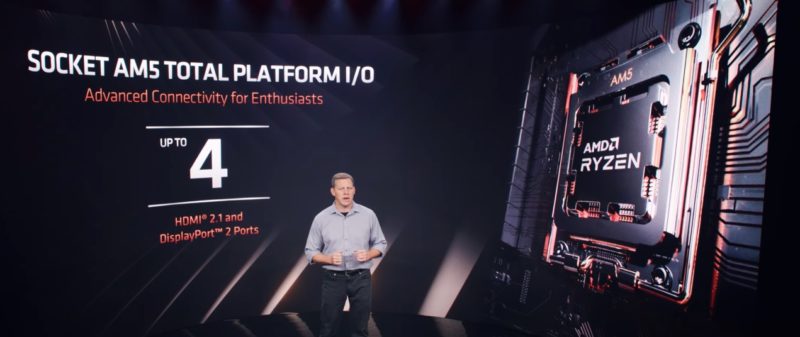
Here is the new AMD Ryzen 7000 series where we can see two compute dies with the I/O die.
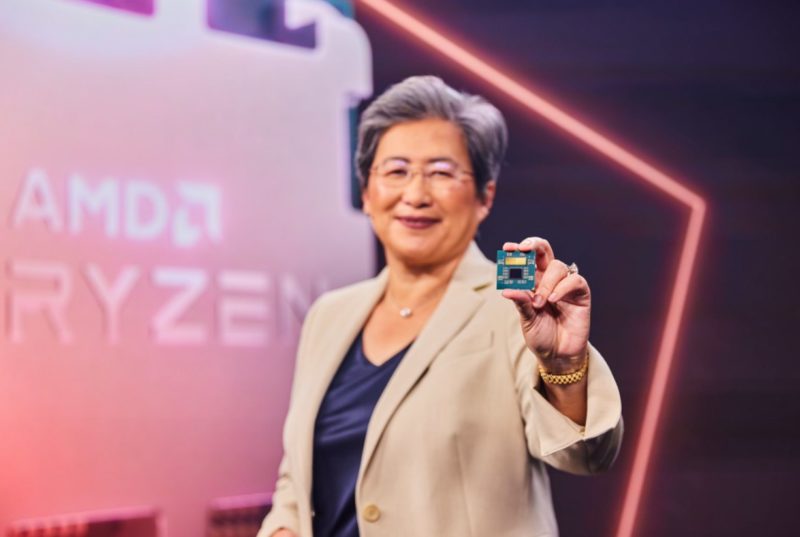
These new chips will utilize a new AMD AM5 platform with three new chipsets. The AMD X670E is the high-end chipset, the X670 is the midrange, and the B650 is the lower-end. PCIe lane connectivity is a big differentiator with the B650 only having PCIe Gen5 to storage to lower board costs. PCIe Gen5 NVMe SSDs are coming later this year.
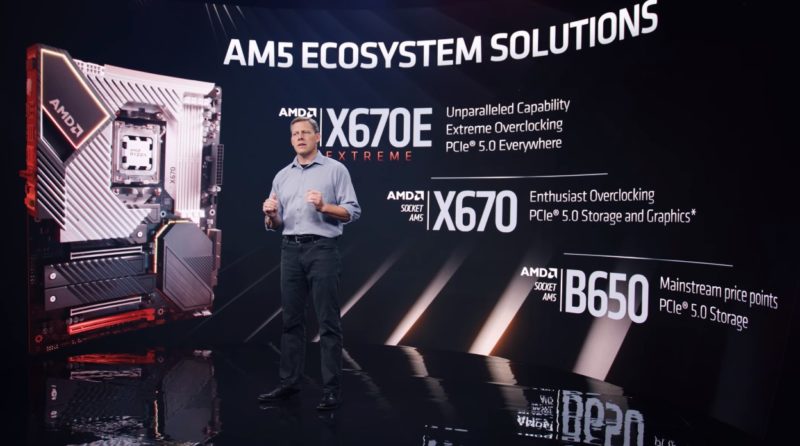
AMD says its solution will have up to 24 PCIe Gen5 lanes.
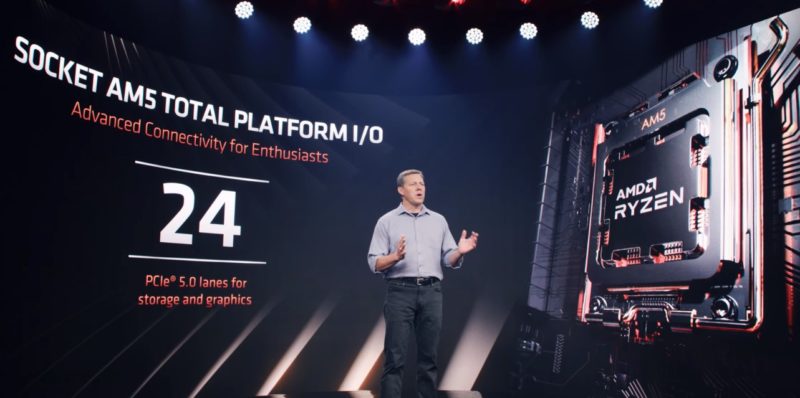
The platform I/O will include up to 14 USB ports and support for 20Gbps USB Type-C.
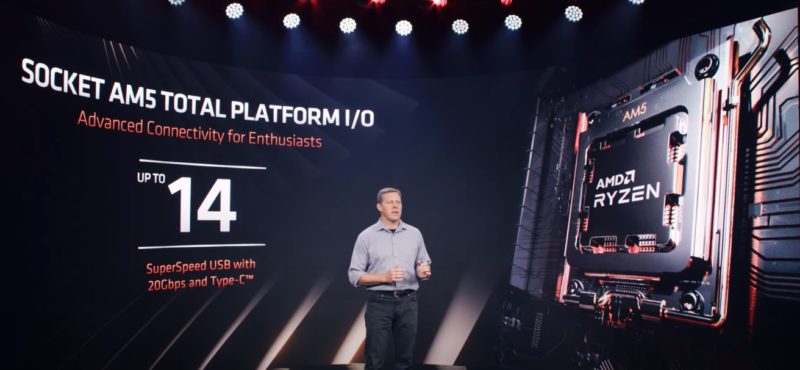
AMD is also partnering it seems with MediaTek for WiFi 6E. We recently covered the MediaTek WiFi 6E solution briefly in our Minisforum HX90 AMD Ryzen 9 5900HX Mini PC Review. Hopefully, the AMD partnership increases driver quality and availability making a stronger alternative to Intel WiFi.
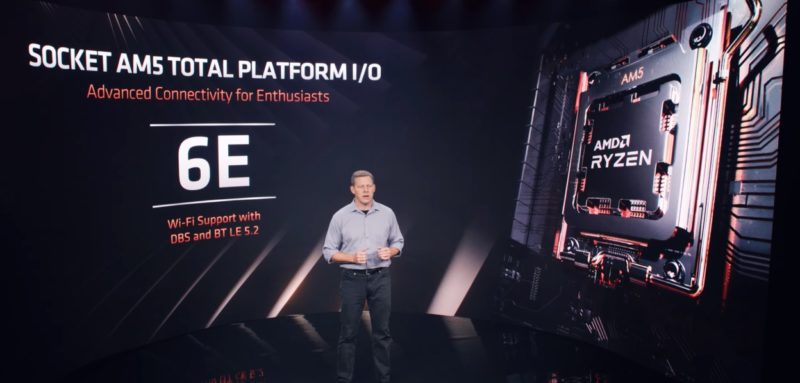
There is certainly a lot changing on the desktop side.
Final Words
The AMD Ryzen 7000 series processors will be available starting in the Fall of 2022. Process shrinks mean that we get a lot more capability and AMD is moving towards providing more acceleration on its chips. Adding an onboard GPU likely means there is a media encode/ decode engine onboard as well. AMD has now said it is building-in AI accelerators likely for inference. It is great to see AMD following these industry trends as players like Intel and Apple have gone down that path for some time. This also is exciting for server chips since we expect Genoa generation EPYC CPUs to have more acceleration capabilities than its predecessor.
We did not get pricing or full information at Computex, but we were told to expect the new chips this fall.

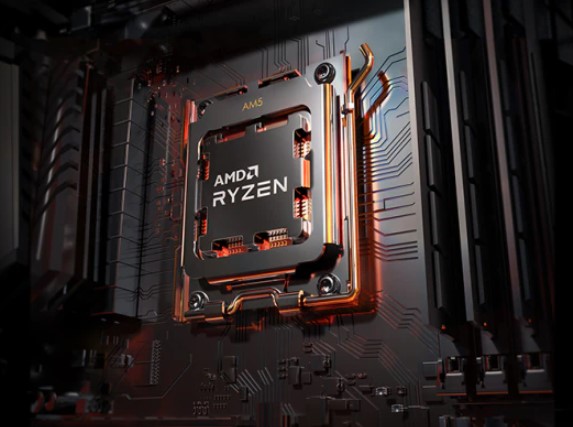
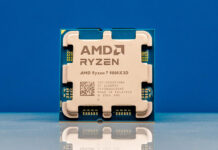
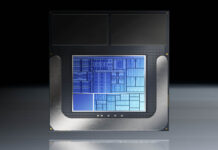

New CPU
New Sockets/Chipset/Motherboard
New PCIe
New Memory
This is going to be a big generational change this year. I’m excited for what this will bring, but I don’t think my bank account is ready!!
I was really hoping my old system would have made it until this stuff launched, sadly the mobo gave up last week. Although having a new 12 core system isn’t exactly a bad thing!